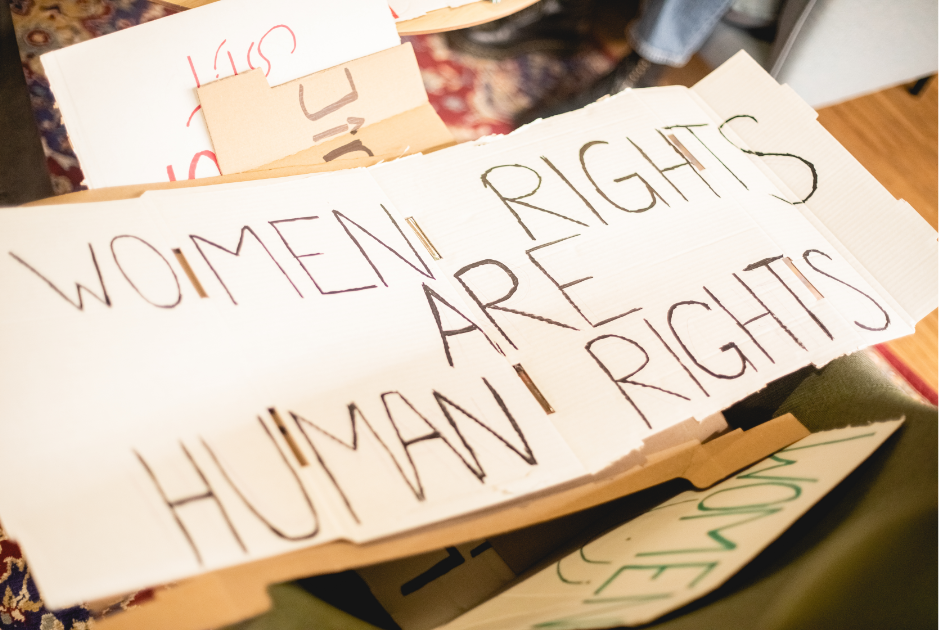She was 15 when men threw acid in her face. They told her she’d be ashamed forever.
ReSurge International helped Muskan Khatun reconstruct her body, and now she’s using her voice to advocate for burn and gender-based violence survivors.

Muskan Khatun was only 15 when she survived an acid attack in Nepal.
When Muskan Khatun was 15 years old, a group of young men started teasing her on her way to school in Nepal. She found it disturbing and uncomfortable, but they wouldn’t stop.
“I finally told my family,” Muskan says. “My dad confronted them, scolded them, and even slapped one of them. After that, they stopped bothering me for about three months.
“Then, one day, when I was heading to school, I saw them again. This time, they had a jug of acid. They tried to make me drink it, but I refused. In anger, they threw the acid on my face, hands, and chest.”
The attackers were arrested, and good samaritans nearby got Muskan to Kirtipur Hospital, where she was treated by local ReSurge surgeon and Country Director, Dr. Shankar Man Rai and his team. Resurge International is a non-profit organization that provides free reconstructive surgical care and trains surgical teams in low-income countries around the world to increase access to care for people who need it, like Muskan. ReSurge’s team in Nepal has treated 141 intentional burn attacks like Muskan’s over the last seven years.
ReSurge helped Muskan take her life back. But that was only the beginning of her story.

One teen’s perseverance created historic change in the law.
“As I learned more about the laws in my country, I realized the justice system didn’t provide enough protection or punishment for such crimes,” Muskan says.” It felt like a bigger hurt than the acid attack itself. That’s when I decided to raise my voice and work towards changing the laws to ensure justice for others like me.”
Muskan wrote to the Prime Minister just days after her attack, but got no response. So she took her voice to the public. For two years, she courageously shared her story and advocated for better laws.
Finally, the Prime Minister invited her to his residence. He listened to her experiences and legal ideas, and in just 15 days, he passed a law specifically targeting acid attacks. The law also passed in Nepal’s parliament in record time.
“This was the first time in Nepal that a law was passed so swiftly,” Muskan says. “The new law was very strict, including a life sentence for offenders, marking the most severe punishment in Nepal for such crimes.” In 2021 Muskan was awarded the prestigious International Women of Courage (IWOC) Award by the U.S. Secretary of State for her work to end acid attacks.

Muskan is not alone. Acid attack survivors around the world have raised their voices to get laws changed—but that’s not the only battle they’re fighting.
Constructing laws is one thing. Reconstructing your burned body is another.
Chemical burns leave survivors with painful scar contractures that restrict movement over the affected areas, forcing them to also relive their trauma every time they look in the mirror or field questions from people about what happened to them. However, burn scars require specialized surgical care, which often isn’t readily available or affordable in most low-income countries.
That’s where ReSurge International comes in.
With a conservative estimate of 10,000 acid attacks each year (many countries don’t keep official records of acid attacks and an estimated 40% of attacks go unreported, according to Acid Survivors Trust International), the surgical needs just for intentional burn victims is significant. Additionally, with 80% of acid attack survivors being women, the gender-based violence aspect of the issue cannot be ignored.
But there’s a gap in surgery accessibility between people in high-income nations, where plastic surgery is often viewed as elective and cosmetic, and those in low-income countries, where it more often addresses critical medical needs.
One way ReSurge is closing that gap is by training the next generation of reconstructive surgeons across Africa, Asia and Latin America, in countries where acid attacks are high. Rather than only sending in surgeons from the outside, ReSurge trains and funds local surgeons, anesthesiologists, nurses, and occupational therapists, focusing on capacity building and prioritizing locally-led solutions with an extra emphasis on training women to close the gender gap in medicine and surgery. Just last year, ReSurge transformed the lives of over 25,000 patients and trained more than 5,000 medical professionals, with 85% of their surgeries being conducted by local partners.
Raising awareness is another way ReSurge is working to ‘close the gap.’
Seeing a potential for a powerful partnership, Resurge orchestrated the first face-to-face meeting between Muskan and fellow acid attack survivor and Woman of Courage Award Winner, Natalia Ponce de León from Colombia, in June of 2024. Like Muskan, Natalia has worked tirelessly to advocate for survivors’ rights and successfully inspired change to her country’s laws. She currently runs a foundation to ensure survivors of chemical attacks get the medical, psychological and legal care they need and deserve. Through the power of mentorship and mutual support, these two remarkable women will be able to increase their reach and amplify the impact of the incredible work they’re already doing.

Preventing more attacks like the ones that changed Muskan and Natalia’s lives requires a multi-faceted approach, as does care for survivors who are living with the aftermath of such violence. Survivor advocates and organizations like ReSurge International working together to ensure that care is accessible for all is a reminder of what humans can do when we set our sights on solutions and keep striving to implement them in the most effective way possible.
Interested in helping? This giving season, ReSurge is matching every gift for twice the impact. To make a gift to support patients like Muskan, read their stories, and learn more about how ReSurge International is closing the gap to reconstructive surgery, visit resurge.org/closing-the-gap
.

 What was I doing again?
What was I doing again? A space waitress at work.
A space waitress at work.  Waking Up Funeral GIF
Waking Up Funeral GIF Rihanna Nails GIF
Rihanna Nails GIF Yoga pants.Image via Canva.
Yoga pants.Image via Canva. Our natural lashes are nice just the way they are!
Our natural lashes are nice just the way they are! One step forward, many steps back. Image via Canva.
One step forward, many steps back. Image via Canva.  Homelessness is especially rampant on the West Coast.Image via Canva
Homelessness is especially rampant on the West Coast.Image via Canva